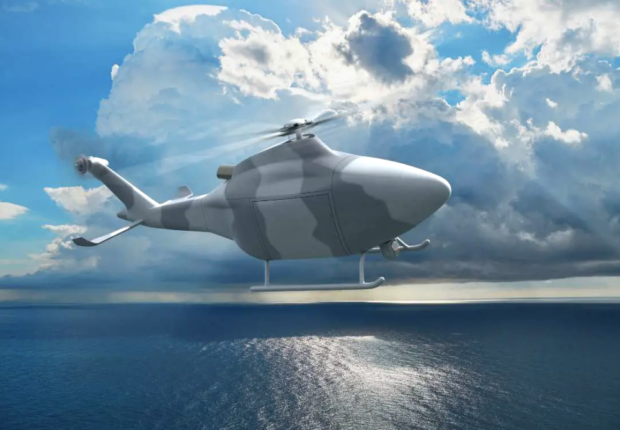After more than a year of anticipation, Leonardo and the UK Ministry of Defence (MOD) unveiled a mature concept of the technology demonstrator, known as project ‘Proteus’ by the British Armed Forces, at DSEI London 2023.
As part of phase 3a of the RWUAS CCD Phase 3 TDP, awarded in July 2022 by the UK MOD Defence Equipment and Support (DE&S) Future Capability Group (FCG), a design which highlights conceptual maturity for uncrewed VTOL and modularity has been finalised.
Leonardo and UK MOD are adopting a fully integrated team approach, adopting agile principles to drive an outcome-based project. The technology demonstrator’s mission systems and mission modules will ensure rapid role changes for frontline commands, including naval and land forces, with mission flexibility during embarked operations.
In close partnership with DE&S, Leonardo continues to investigate the potential systems which will contribute to the technology demonstrator’s final architecture that will form part of the UK MOD Rotary Wing Strategy, as contracted on the four-year programme. Leonardo is adopting new technologies including the development of a full digital twin and additive manufacturing techniques to consolidate trade-offs between capability, performance, cost, sustainability and serviceability.
James Gavin, head of the Future Capability Group at Defence Equipment and Support, said: ”
Key to this project’s success is the close collaboration between the Royal Navy, DE&S’s Future Capability Group and Leonardo’s team. Our strategy at DE&S is clear that agility, innovation and team work with industry are essential drivers to ensure our Armed Forces have the operational edge – elements which Proteus embodies.”
Adam Clarke, Managing Director of Leonardo Helicopters UK, commented:
“As the onshore design authority, Leonardo is exploring the art of the possible at a capability level, which will also invoke an extensive adoption of autonomy and automation into our future technologies. The RWUAS TDP is unique because it is much more than the technology – it’s about the teamwork and integration that is taking place between us and the UK MOD in enabling a dynamic, transparent and flexible approach, which will ensure long-term uncrewed capability benefits that will de-risk the path to fully autonomous flight.”
The design selected is optimum for maritime operations. The single-engine RWUAS air vehicle, in the 2-3t class, will be capable of being adapted to deliver a wide range of roles including maritime surveillance, maritime organic air missions and logistics supply.
The Proteus TDP will inform the Royal Navy’s Future Maritime Aviation Force (FMAF) vision for Anti-Submarine Warfare and AEW support. The technology demonstrator is anticipated to fly by the middle of this decade.
Source: Press Release

